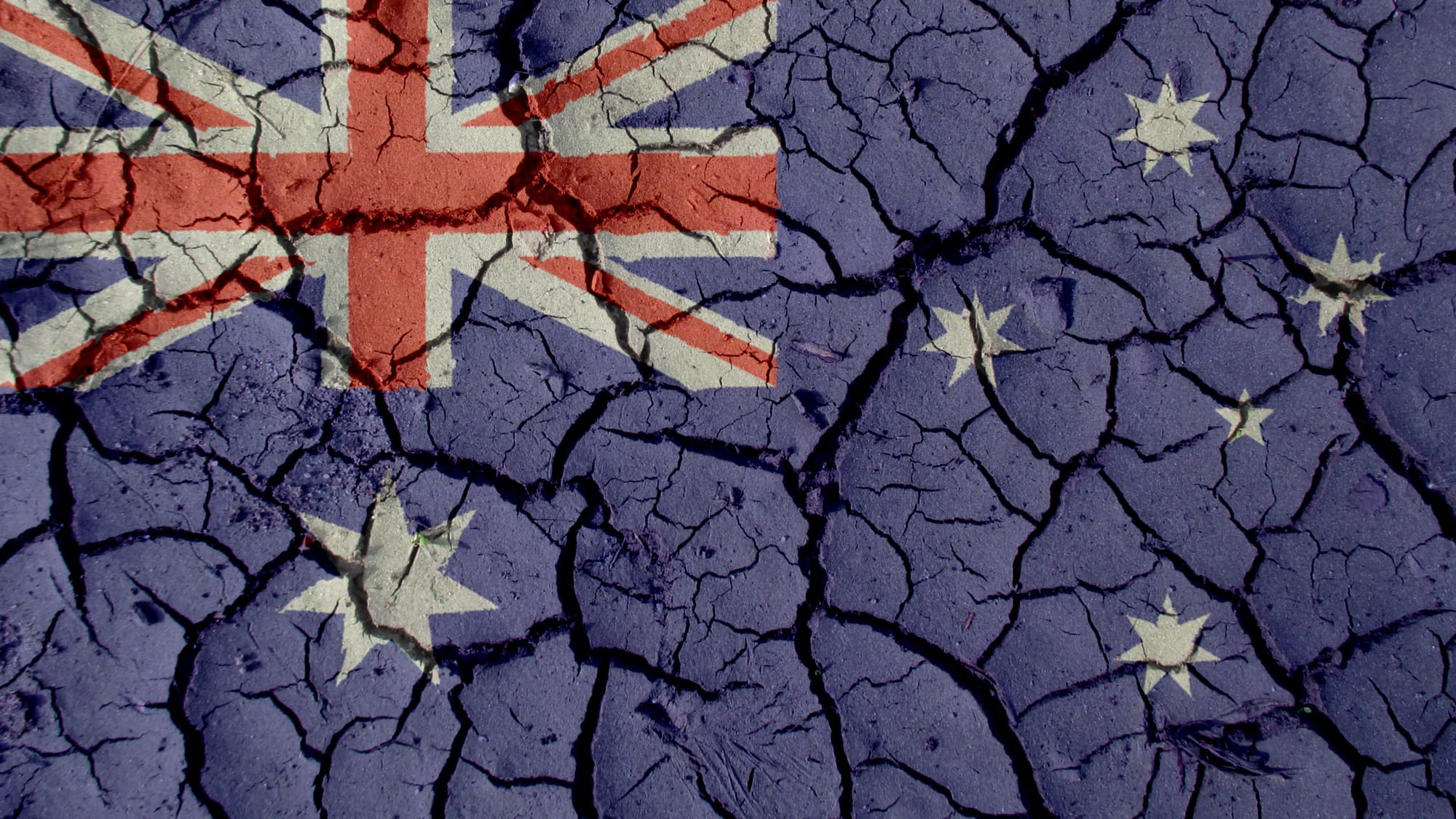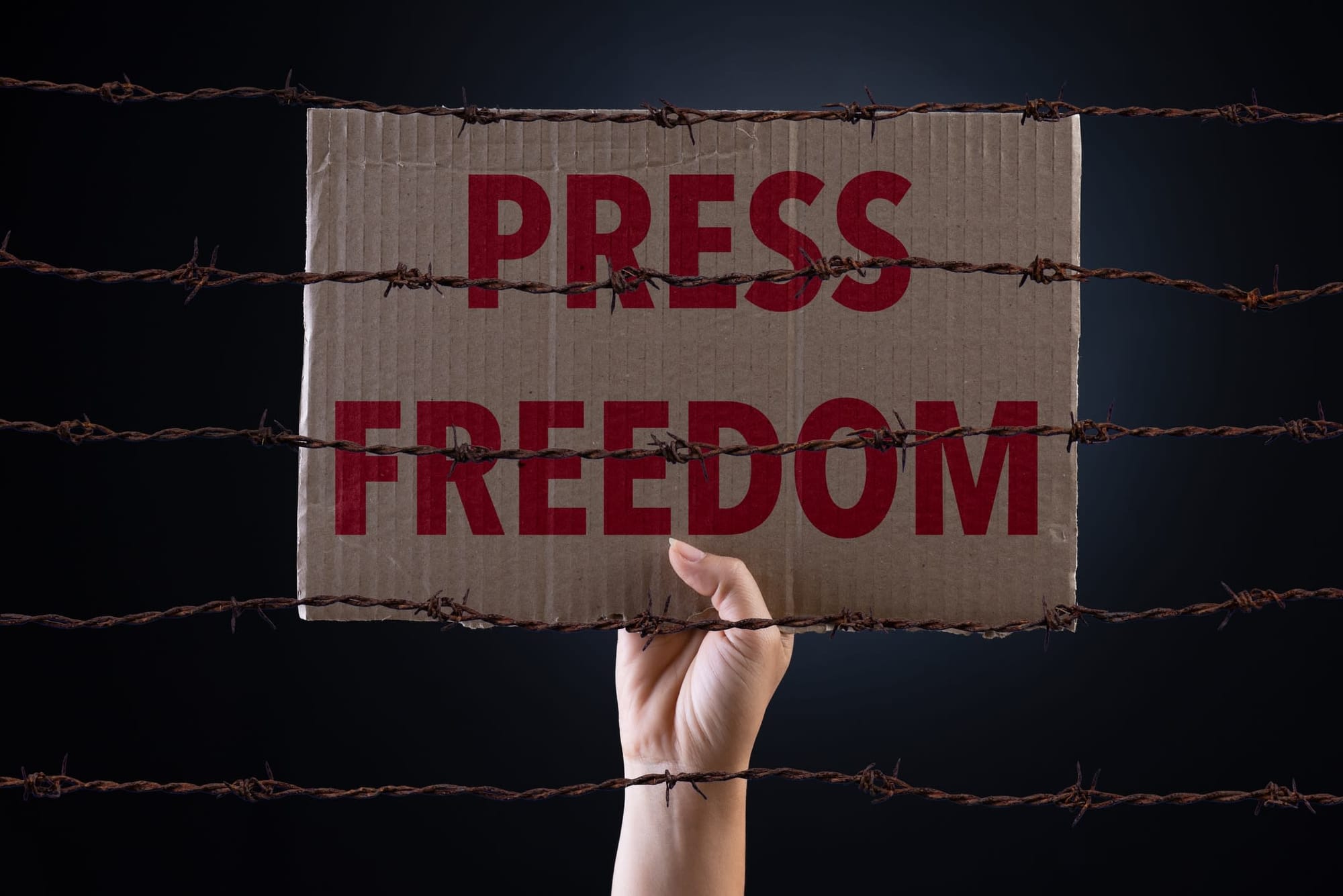
The seesaw balancing civil liberties and government power has tipped dangerously towards government power in Australia. We’ve arrived at a crossroad. One road sign reads "More security laws", the other reads "A healthy democracy". We have to make a choice. And much more is at stake than media freedom and free speech.
Australian democracy is running a temperature. The illness has been incubating for a while (since 11 September, 2001, to be precise). Our lawmakers have passed or amended more (64 and counting) national security/anti-terror laws than any other mature liberal democracy. It’s a very dubious world record to hold.
"Let’s be clear – this goes way beyond free speech and media freedom. This is about how we want our democracy to function."
The recent Australian Federal Police (AFP) consecutive raids on award-winning Monash graduate and News Corp journalist Annika Smethurst, and the Australian Broadcasting Corporation (ABC), increased the fever to 38.5 degrees Celsius. In both cases the journalists were reporting on issues that were in the highest public interest, and the AFP’s and government’s arguments that the reporting jeopardised national security is completely without grounds.

Let’s be clear – this goes way beyond free speech and media freedom. This is about how we want our democracy to function. Consider the following symptoms of the democratic flu:
Australian governments (state and federal) hunt whistleblowers, threatening them with long jail terms instead of protecting and rewarding them for speaking out.
Related: Reporting the COVID-19 crisis: national press conferences and political journalism
Our freedom of information (FOI) laws exempt the Australian intelligence and security agencies. This sends a very powerful signal of secrecy being the norm. All states need to keep secrets, but the blanket exemptions of security agencies from FOI makes Australia an outlier in the mature liberal democratic world. Case in point: the Central Intelligence Agency in the US is not exempt from US FOI laws.
Our elected representatives are cynically using real or perceived fear of terrorism and national security to score domestic political points. My colleagues and I pointed this out in our 2018 book, In the Name of Security – Secrecy, Surveillance and Journalism.
This political strategy (state of exception/emergency) can be traced back to Roman times. A more recent example was the then UK Prime Minister Margaret Thatcher’s decision to go to war over the Falkland Islands in 1982 to score domestic political points.
The Australian equivalent was the 2003 Iraq conflict where the Howard government took Australia to war on unjust grounds. It should be noted that while the other main members of the ‘coalition of the willing’ have gone through significant self-reflection, including the UK Chilcot report that unequivocally showed what a grave mistake the 2003 Iraq war was, no such self-reflection has eventuated in Australia.
The current version of the Falklands and Iraq wars is the so-called ‘war on terror’. We concluded our book thus:
The war on terror has no single identifiable enemy. Indeed, a lot of the real and perceived threats come from within nation states, as well as from outside. In these circumstances, there is no single entity with whom governments can negotiate the terms of peace. That leaves the prospect of an open-ended period during which the state of exception increasingly becomes the state of normality, supported by ever-growing mass surveillance capabilities as described by whistleblowers interviewed in the BBC documentary Weapons of Mass Surveillance. The whistleblowers’ testimonies point to a future where security agencies can record all digital traffic within a country in real time, store it and conduct retrospective searches of suspect activity.
Who do we entrust with these truly awesome surveillance powers? How will they be used by authoritarian regimes?
How far are we prepared to go in the name of security?
It's with a heavy heart that I see our predictions in the book of a possible future now played out in Australia. We have reached a tipping point. The legal framework both major parties have put in place since 11 September, 2001, is handing those that want to harm us victory, because all the new and amended national security and anti-terrorism laws are undermining our civil liberties and seriously impeding our capability of keeping power to account. This is exactly what terrorists want – making our democracy ill.
So, what needs to be done?
We need to review and amend the sections in our criminal codes that make it a crime for public servants to blow the whistle on maladministration and corruption. One example is Section 70 of the Commonwealth Crimes Act. These sections are outdated, draconian and, frankly, not worthy of a mature liberal democracy.
We need to have an ongoing review of our national security and anti-terror laws. Once per year we need to assess the threat level and ask the question: "Do we really need this level of power for the intelligence and security agencies?" If the answer is no, we need to roll back their powers.
"Australia is currently sliding around on the privacy continuum, seemingly unable to make up its mind."

We must amend the federal FOI law to include our spy and security agencies. This sends a signal of accountability and transparency.
We need a bill or charter of rights explicitly protecting our civil liberties such as freedom of speech and media freedom. If we can’t get a constitutional bill of rights through Parliament, the second-best option is a media freedom act. Either of these options would be a way to get the national security and democratic freedom seesaw back in balance.
National security and anti-terror laws predominantly treat the symptoms of terrorism, but they do little to address the causes of terror. The causes are complex: rapidly growing economic divides, social alienation, a sense of being left behind, and missing out on the benefits of globalisation. The Australian government needs to spend much more effort on the causes of terrorism, rather than just creating a web of laws.
With the ever-increasing power of mass surveillance, a future emerges where our governments (and corporations) know everything about us all the time. A privacy continuum is emerging. One end is represented by China and other totalitarian states that are on the cusp of rolling out nationwide mass surveillance dragnets that renders privacy void. The data can then be used to create a social credit rating system such as the one currently trialled in China. The other end of the continuum is represented by states and regions that are upholding privacy as a human and democratic right. The leading light here is the European Union.
Australia is currently sliding around on the privacy continuum, seemingly unable to make up its mind. The time has come to choose. Where do we want Australia to sit? This is a crucial call if we want Australia’s temperature to return to normal and recover from the democratic flu.





